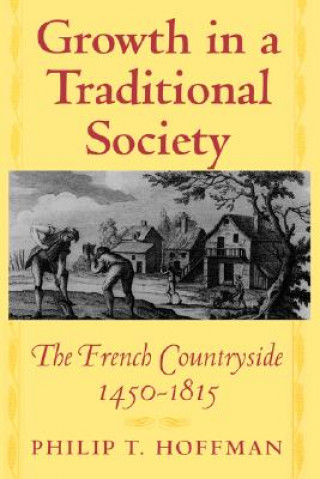
Kézbesítés
Vásárlási tanácsadó





Nem vált be? Semmi gond! Nálunk 30 napon belül visszaküldheti
 Ajándékutalvány
bármilyen értékben
Ajándékutalvány
bármilyen értékben
Ajándékutalvánnyal nem nyúlhat mellé. A megajándékozott az ajándékutalványért bármit választhat kínálatunkból.
Growth in a Traditional Society
 Angol
Angol
 204 b
204 b
30 nap a termék visszaküldésére
Ezt is ajánljuk


Philip Hoffman shatters the widespread myth that traditional agricultural societies in early modern Europe were socially and economically stagnant and ultimately dependent on wide-scale political revolution for their growth. Through a richly detailed historical investigation of the peasant agriculture of ancien-regime France, the author uncovers evidence that requires a new understanding of what constituted economic growth in such societies. His arguments rest on a measurement of long-term growth that enables him to analyze the economic, institutional, and political factors that explain its forms and rhythms. In comparing France with England and Germany, Hoffman arrives at fresh answers to some classic questions: Did French agriculture lag behind farming in other countries? If so, did the obstacles in French agriculture lurk within peasant society itself, in the peasants' culture, in their communal property rights, or in the small scale of their farms? Or did the obstacles hide elsewhere, in politics, in the tax system, or in meager opportunities for trade? The author discovers that growth cannot be explained by culture, property rights, or farm size, and argues that the real causes of growth derived from politics and gains from trade. By challenging other widely held beliefs, such as the nature of the commons and the workings of the rural economy, Hoffman offers a new analysis of peasant society and culture, one based on microeconomics and game theory and intended for a wide range of social scientists.
Információ a könyvről
 Angol
Angol
Kategória


 Kapcsolat
Kapcsolat Hogyan vásároljunk
Hogyan vásároljunk

























